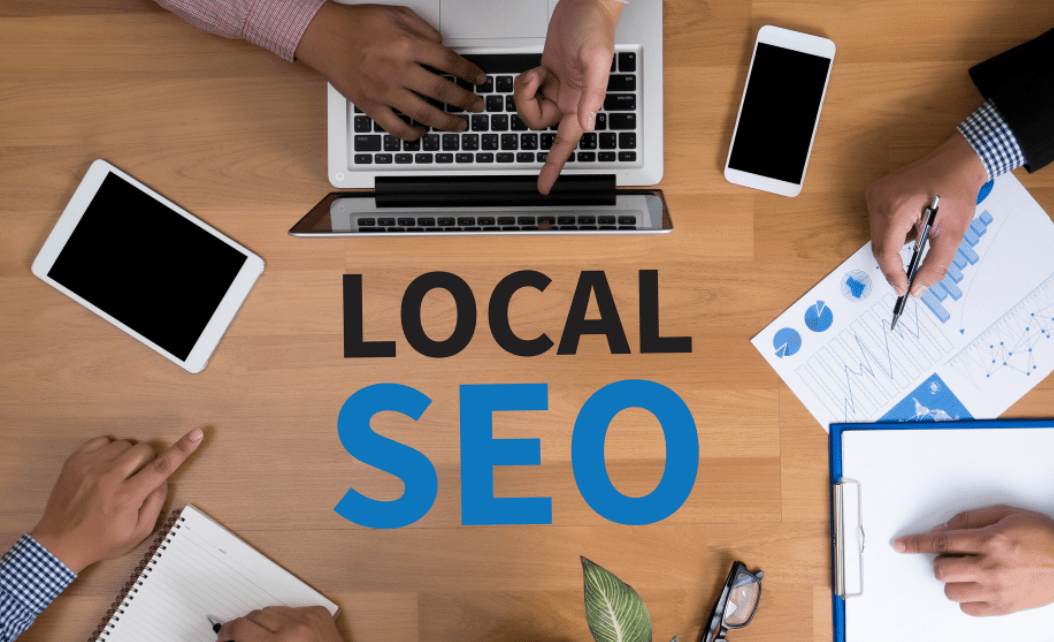Predis AI: Is This AI-Powered Tool Worth The Hype?
Apr 23, 2025

Apr 23, 2025

Apr 22, 2025

Apr 21, 2025

Apr 17, 2025

Apr 16, 2025

Apr 16, 2025

Apr 15, 2025

Apr 11, 2025
Sorry, but nothing matched your search "". Please try again with some different keywords.


Do you want your business to be found by more potential customers? If so, you need to focus on improving your local search engine rankings.
Ranking high in local search results can mean a lot of new business for your company – but it takes work. It is this fact that decides a significant portion of your business ability in today’s technological landscape.
This guide will share tips and tricks that will help you get the most from your local SEO efforts. We’ll cover everything from keyword research to link building and much more!
Keep reading to discover the importance and utility of local search engine rankings.

Local search engine rankings are how businesses appear in local search results. Orders can vary depending on the location that a person is searching from and the type of business being searched for.
For example, if you search for “pizza restaurants near me” on Google, the businesses that appear at the top of the results will be those with the highest local search engine rankings for that specific area and keyword phrase.
Local search engine rankings are essential because they can directly impact the amount of business your company receives.
If potential customers in your area cannot find your business when they search for relevant keywords, they will likely choose one of your competitors instead. In other words, having high local search engine rankings is essential if you want to make it easy for potential customers to find and choose your business over others.
Many factors affect local search engine rankings, but some are more important than others. Here are a few of the most important things you can do to improve your order:
The bottom line is that improving your local search engine rankings takes time and effort, but it’s well worth it in the end.
So what are you waiting for? Start optimizing today! By following the tips in this guide, you can give your business a competitive edge over other companies in your area.
One of the most important things to improve your local search engine rankings is to conduct keyword research.
This process involves identifying keywords that potential customers are searching for when looking for businesses like yours. Once you know which keywords to target, you can optimize your website and marketing efforts to rank higher for those keywords.
It’s essential to target various keywords, not just the most popular ones. Why? Because the more specific a person’s search is, the more likely they are to find your business.
For example, someone who searches for “pizza restaurants near me” is likely looking for a specific type of restaurant in their area. In contrast, someone who searches for “Italian food recipes” may be interested in all kinds of Italian cuisine.
You can use several different tools to help you conduct keyword research, including Google AdWords Keyword Planner and semrush.com.
These tools allow you to see how many people are searching for a particular keyword each month, as well as the competition for that keyword. This information can help you determine which keywords are worth targeting and how best to go about doing so.
Once you know which keywords to target, optimizing your website for local SEO is essential. Website maintenance is critical.
This includes adding relevant keywords to your website content and including your business name, address, and phone number on all of your web pages. You should also make sure that your website is mobile-friendly, as more and more people are using their smartphones to conduct local searches.
Another thing you can do to improve your website’s ranking is added it to directories like Google My Business. This free service allows businesses to create a listing with their contact information and website URL, and it’s one of the most important factors that Google rankings consider.
Another factor that affects your local search engine rankings is the number of links you have from other local businesses and websites. The more links you have, the higher your website will rank.
You can increase the number of links by participating in local marketing activities like advertising in local newspapers or directories or sponsoring events in your area.
You can also reach out to other businesses and ask them to link to your website. This process can be a little tricky, but it can be very effective if done correctly. The best way to start is by finding sites relevant to yours and sending them an email asking if they would be interested in exchanging links.
Next, you need to use local marketing tactics to improve your local search engine rankings. This includes advertising in local newspapers or directories or sponsoring events in your area.
The best way to engage in this activity is to find out which publications and directories your target customers are reading or using and then advertise in those venues.
You can also reach out to local businesses and ask them to sponsor events that you’re hosting or participating in.
Once you’ve made all of the necessary changes to your website and marketing efforts, it’s essential to regularly monitor your local search engine rankings.
This will allow you to see how well your efforts are paying off and make changes as needed. You can use several tools to track your rankings, including Moz Local and Whitespark.
The bottom line is that improving your local search engine rankings takes time and effort, but it’s well worth it in the end. By following the tips in this guide, you can give your business a competitive edge over other companies in your area. So what are you waiting for? Start optimizing today!
One last thing to remember is that you need to make sure your business information is always up to date.
This includes things like your address, phone number, and website URL. You can use a tool like Moz Local to help you keep track of all your business information and ensure that it’s always up to date.
SEO is an ever-changing landscape, so it’s essential to stay on top of the latest trends if you want to maintain high local search engine rankings.
Last but not least, don’t forget to encourage reviews. Google My Business allows customers to leave reviews for businesses, and these reviews can have a significant impact on your ranking.
The more positive reviews you have, the higher you’ll rank. So make sure to let your customers know that you appreciate their feedback.
If you follow these tips, you should see a significant improvement in your local search engine rankings. And if at first, you don’t succeed, keep trying! Remember to be patient; it takes time for changes to take effect.
There is no one-size-fits-all answer to this question, as it depends on your business and its needs.
However, if you’re not familiar with local SEO or link building, it may be worth outsourcing these processes to specialists who are experts in those areas. This can help ensure that your website gets the most from local search engine rankings.
The right people will help you navigate the waters and get on Google Maps. They know how to get your business in front of potential customers when they search for the types of products or services you offer.
The benefits of outsourcing these processes include:
Once you’ve found a few reputable companies, compare their prices and services to find the one that best meets your needs. Outsourcing these processes can be a great way to improve your local search engine rankings and take your business to the next level.
The most important thing is to get started and keep at it when it comes to local SEO. The sooner you start, the sooner you’ll see results. And remember, even if you’re not ranking number one in your area yet, every little bit helps. So don’t give up! Keep working at it, and you’ll eventually achieve the local search engine rankings you’re looking for.
Besides the tips mentioned above, there are some less-traditional ones. For instance, you could get featured in a local news article or on a popular blog. This can help attract attention to your business and improve your local search engine rankings.
You could also try setting up Bing Places for Business listings. This free listing appears when people search for businesses in your area. Claiming and optimizing these listings can help improve your local search engine rankings.
Don’t forget about social media! Creating profiles on sites like Facebook, Twitter, and LinkedIn and regularly posting updates can help attract attention to your business and improve your local search engine rankings.
Acquiring reviews on your Google Business profile is tremendous for local SEO. You can also get creative and host contests or offer discounts to customers who leave reviews.
It’s also important to be responsive to the feedback, whether good or bad. You need to be able to accommodate the client’s needs before or after they made use of your services.

One of the most common mistakes made when optimizing for local SEO is failing to include your business name, address, and phone number on all of your web pages. This information is known as NAP (name, address, phone), and it’s one of the most important factors that Google considers when ranking websites.
Another mistake often made is not regularly monitoring your local search engine rankings. This can make it difficult to see how well your efforts are paying off and make changes as needed.
Finally, some businesses fail to use local marketing tactics like advertising in local newspapers or directories or sponsoring events in their area. This can be a missed opportunity to reach out to potential customers and improve your chances of ranking higher in local search engine results.
If you’re looking to improve your local search engine rankings, make sure to avoid these common mistakes!
Knowing such mistakes and avoiding them can help improve a business’s online visibility and bring local traffic. Here are some of the most common errors made in local SEO optimization:
One of the most powerful tools in local SEO is Google My Business. Another wonderful mistake is not claiming your GMB listing or leaving it incomplete.
This mistake results in the potential loss which arises due to uncompleted and inconsistent information related to business hours, address, phone number, and website.
GMB profile needs to be optimized to have meaningful description, quality photos, and up-to-date business details.
NAP stands for Name, Address, and Phone Number. When the NAP details on your website and online directories vary from those in Yelp, Yellow Pages, and local business directories, search engines, as well as customers get perplexed.
Your NAP information, therefore, should be uniform wherever it appears, because inconsistent details may cause harm to your local search rankings.
Mobile search is very important in today’s world, especially for local searches. A common mistake that can hurt your rankings is failing to optimize your website for mobile devices.
A website that is not mobile-friendly provides poor user experience, which leads to higher bounce rates and lower rankings in local search results. Ensure that your site is responsive and loads quickly on mobile devices.
Local SEO is all about local relevance. Many businesses will make the mistake of simply posting generic content that does not speak directly to their targeted audience.
Generic content does not address local trends or events, nor does it relate to issues in a local community, which are hard to rank for with local keywords.
Adding location-specific keywords, blogs about local subjects, and content that puts the business into the community can certainly be of assistance in promoting local relevance.
There is no one-size-fits-all answer for local SEO, but the tips in this guide will help you get started on the right foot.
Remember to include your NAP on all of your web pages, monitor your rankings regularly, and use local marketing tactics to reach potential customers. You can improve your local search engine rankings and take your business to the next level by following these tips.
If you’re interested in learning more about similar topics, check out the related articles on the sidebar or the main page of our website.
Read Also:
Nabamita Sinha loves to write about lifestyle and pop-culture. In her free time, she loves to watch movies and TV series and experiment with food. Her favorite niche topics are fashion, lifestyle, travel, and gossip content. Her style of writing is creative and quirky.
View all Posts
Predis AI: Is This AI-Powered Tool Worth The ...
Apr 23, 2025
Fliki AI: Is This AI-Powered Tool Worth The H...
Apr 22, 2025
Andi Search: Is This AI-Driven Search Engine ...
Apr 21, 2025
How To Retrieve Deleted Text Messages On Andr...
Apr 17, 2025
How To Know If Someone Blocked You On iMessag...
Apr 16, 2025

